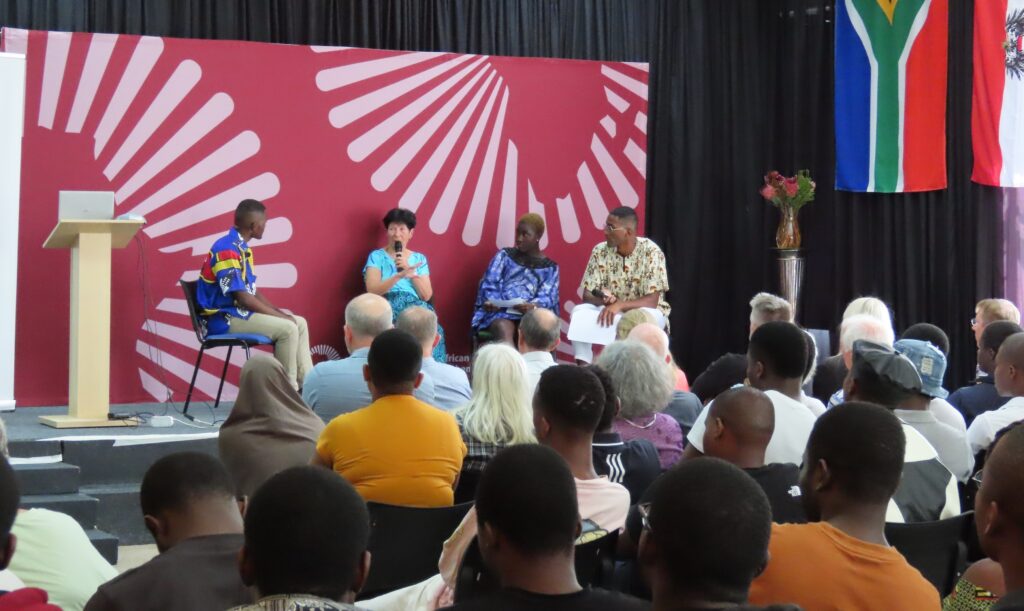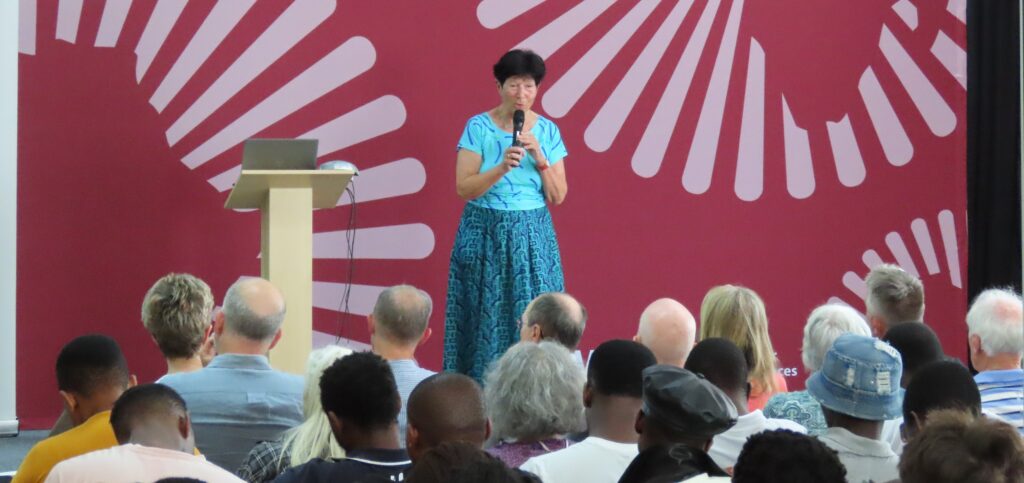As new AI technology permeates our education system and thought processes, it is imperative that we lean on our wisdom and common sense – skills that distinguish humans from AI systems. This was a central theme discussed during a public lecture by Prof. Dr. Helga Nowotny, a founding member of the European Research Council (ERC) and Professor Emerita of Science and Technology Studies at ETH Zurich. Prof. Nowotny, who has published several influential books, recently authored “In AI We Trust: Power, Illusion, and Control of Predictive Algorithms.” The lecture titled: ‘The illusion of control Wisdom and regulation of AI’ took place at AIMS South Africa on 13 February 2024, aiming to engage both the AIMS community and the wider public.
A panel discussion was facilitated by AIMS students: Mr Linda Wiseman Dlamini from Eswatini, Ms Catherine Nana Nyaah from Ghana, Mr Anas Ahmed Abdou Awadalla from Egypt, alongside AIMS director Prof. Ulrich Paquet.

The welcome remarks were provided by Mrs Romana Königsbrun, the Austrian Ambassador to South Africa. Prof. Nowotny initiated her discourse by setting the stage for the topic, followed by an insightful summary of her research. She emphasised the vital distinction between human and machine intelligence, notably that human accuracy differs significantly from machine precision. She pointed out that, especially in the medical field, machines can outperform humans due to their ability to execute precise calculations and progress research without the natural errors humans might make.
The panel discussion delved into AI’s role in education, contemplating how it might reshape future learning. The consensus was that AI could revolutionize education by providing personalised tutoring for every child, thereby enhancing their learning experience. However, it’s crucial to foster common sense and critical thinking in our youth. Technology serves as an aid, not a replacement for essential human capabilities. The future of wisdom instilled in our children mandates a greater emphasis on critical thinking, which in turn nurtures their wisdom. Unlike AI, which has fixed responses and lacks emotional depth, human intelligence is dynamic, capable of fluctuating reactions and feelings. The panel highlighted that global cooperation could facilitate harmonious coexistence with AI, whereas resistance might lead to division.
Prof. Nowotny succinctly summarised, “AI in education means we must trust our children to use common sense and wisdom while technology serves to educate and assist them.”
This public lecture forms part of the AIMS South Africa Public Lecture Series, which invites scientists to share their research insights and discoveries with the public.

